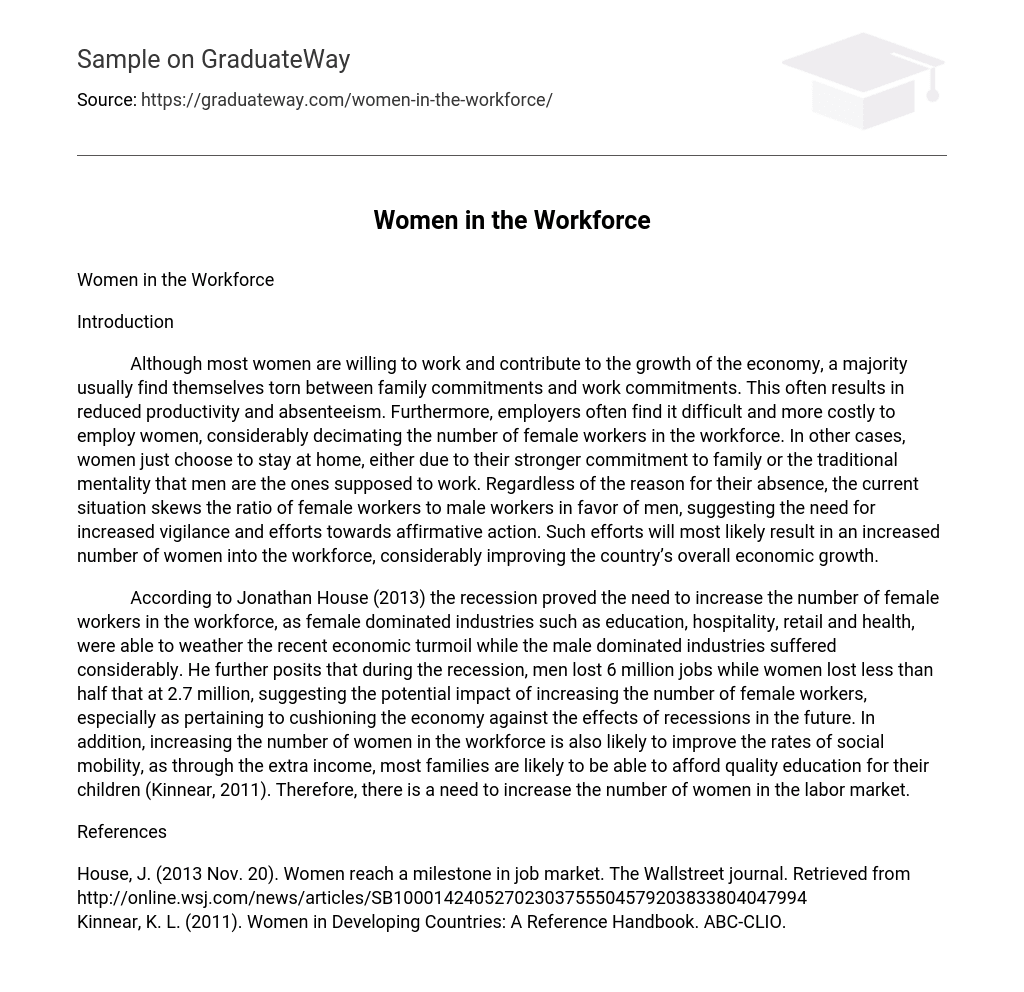Introduction
Although most women are willing to work and contribute to the growth of the economy, a majority usually find themselves torn between family commitments and work commitments. This often results in reduced productivity and absenteeism. Furthermore, employers often find it difficult and more costly to employ women, considerably decimating the number of female workers in the workforce. In other cases, women just choose to stay at home, either due to their stronger commitment to family or the traditional mentality that men are the ones supposed to work. Regardless of the reason for their absence, the current situation skews the ratio of female workers to male workers in favor of men, suggesting the need for increased vigilance and efforts towards affirmative action. Such efforts will most likely result in an increased number of women into the workforce, considerably improving the country’s overall economic growth.
According to Jonathan House (2013) the recession proved the need to increase the number of female workers in the workforce, as female dominated industries such as education, hospitality, retail and health, were able to weather the recent economic turmoil while the male dominated industries suffered considerably. He further posits that during the recession, men lost 6 million jobs while women lost less than half that at 2.7 million, suggesting the potential impact of increasing the number of female workers, especially as pertaining to cushioning the economy against the effects of recessions in the future. In addition, increasing the number of women in the workforce is also likely to improve the rates of social mobility, as through the extra income, most families are likely to be able to afford quality education for their children (Kinnear, 2011). Therefore, there is a need to increase the number of women in the labor market.
References
House, J. (2013 Nov. 20). Women reach a milestone in job market. The Wallstreet journal. Retrieved from
http://online.wsj.com/news/articles/SB10001424052702303755504579203833804047994
Kinnear, K. L. (2011). Women in Developing Countries: A Reference Handbook. ABC-CLIO.





